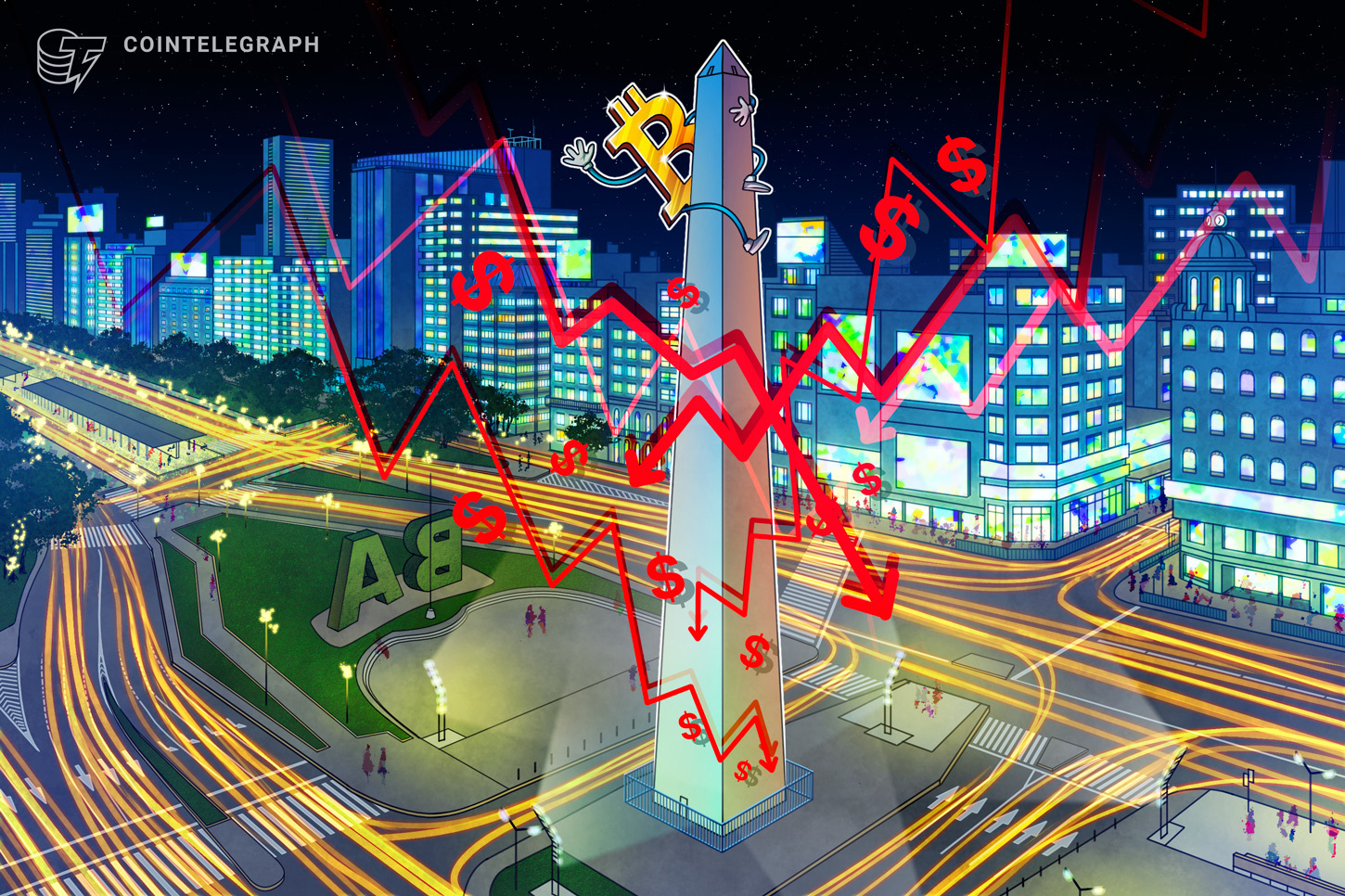As Argentina grapples with soaring inflation and a run on the peso that has battered domestic asset prices, the United States has stepped in with the promise of a financial lifeline — though Bitcoin proponents remain skeptical it will make a difference.
The peso tumbled roughly 4.5% last week as investors questioned President Javier Milei’s ability to deliver fiscal and structural reforms following his party’s poor showing in Buenos Aires provincial elections earlier this month. The sell-off was compounded by a corruption investigation involving a family member of Milei, deepening political uncertainty.
Investor unease triggered heavy outflows from Argentine markets. The central bank was forced to spend about $1.1 billion over three days to defend the peso — a hefty sum given that the country holds only about $20 billion in liquid foreign reserves, according to Bloomberg.
Prices of Argentina’s dollar bonds also sank amid concern that Milei’s government was burning through cash at an unsustainable pace.
Amid the turmoil, US Treasury Secretary Scott Bessent said Monday that Washington considers Argentina “a systemically important ally” in Latin America, declaring that “all options for stabilization are on the table.”
Measures under discussion include swap lines, direct currency purchases and the use of the Treasury’s Exchange Stabilization Fund to buy Argentine government debt, Bessent said.
Bessent’s remarks appeared to briefly restore investor confidence. According to the Financial Times, Argentina’s Merval stock index surged more than 9% in US dollar terms on Monday, though it is still down about 49% for the year. Dollar bonds also staged a sharp rebound.
Controversy has followed Milei throughout his presidency. As Cointelegraph noted, his endorsement of LIBRA — a cryptocurrency project widely criticized as a pump-and-dump scheme — triggered a federal investigation, though Milei later disbanded the task force assigned to the case.
Related: LIBRA token creator fights class suit, citing lack of jurisdiction
“Bitcoin Standard” author’s scathing critique
As president, Milei has struggled to put Argentina’s fiscal house in order. Economist Saifedean Ammous, author of “The Bitcoin Standard,” argued that Milei has in fact worsened the country’s plight through what he called a “debt and inflation Ponzi that is coming to an end.”
Ammous criticized Milei for failing to rein in inflation, noting that the Treasury managed to sell its most recent bond auction only after hiking annual interest rates to an eye-watering 88%. He also accused the government of massively expanding the money supply despite Milei’s libertarian branding.
On Friday, Ammous doubled down, pointing to the peso’s collapse since Milei took office.
Related: Tokenization could unlock capital markets growth in Latin America
Argentina’s crypto adoption accelerates amid economic, political pressures
Although the peso operates within a managed currency band — with the dollar fluctuating between 948 and 1,475 — electoral uncertainty is pushing Argentines to seek refuge in stronger alternatives, particularly US dollar–backed stablecoins.
“Electoral uncertainty is driving Argentines to seek refuge in currencies stronger than the peso, such as the crypto dollar,” Ignacio Gimenez, business manager at Lemon, a crypto trading app, told Cointelegraph.
Gimenez noted that Sept. 14 marked the platform’s highest daily volume of stablecoin purchases since 2024.
“From mid-August to date, when the dollar began to rise, we noticed a predominance of stablecoin sales over purchases, except for the election peak. This shows that with a higher dollar, many Argentines today choose to sell and get pesos,” he noted.
Asked about Milei’s economic reforms and their impact on crypto adoption, Gimenez said the government’s fiscal adjustment is ongoing, and it’s too early to judge the results. What remains clear, however, is that “Argentines continue to turn to stablecoins as a real-time hedge against the political and economic uncertainty that characterizes our country.”
Stablecoins in Argentina are not only used as protection against currency debasement, but also for international payments, remittances and access to decentralized finance.
Bitcoin (BTC) has also gained traction as a store of value. Since 2024, when exchange rate stability and declining inflation took hold, Bitcoin has, in some cases, become more attractive than the US dollar. “Currently, there are more Argentines with Bitcoin than with crypto dollars on Lemon,” Gimenez noted.
Related: USDC, USDt stablecoins are ‘store of value’ in Latin America — Bitso


